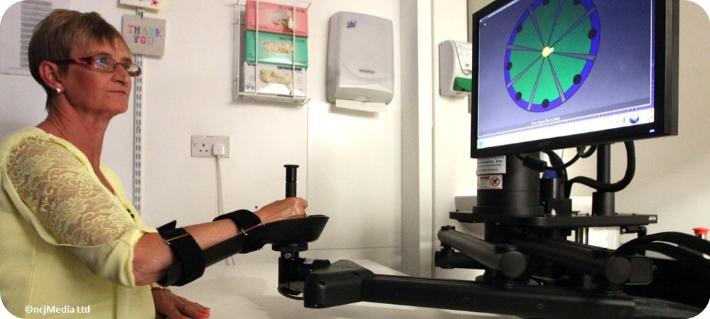About RATULS

THE RATULS TRIAL IS NOW CLOSED TO RECRUITMENT AT ALL STUDY CENTRES
Loss of the ability to use the arm or hand affects up to 85% of patients who have had a stroke. People report that this can be a distressing long term effect of stroke and often rehabilitation after stroke does not focus enough on arm or hand recovery.
At the moment it is unclear how best to provide rehabilitation to improve arm recovery and function. Common options include working with a physiotherapist or occupational therapist to perform different types of exercises using the arm. Newer options include using rehabilitation robots. A rehabilitation robot is a machine which assists with exercises. The arm affected by stroke is placed onto the robot ‘arm’ which is connected to a computer. The computer screen displays games which are played by moving the robot arm. If you are unable to move the robot arm, the robot assists you to do this to complete the game.
The purpose of this research study is to determine whether arm rehabilitation using a rehabilitation robot (called 'robot-assisted training' in this study) improves arm function after a stroke. Arm rehabilitation with the robot will be compared to an arm rehabilitation programme of consisting of repeated practise of everyday activities using the arm (called 'enhanced upper limb therapy' in this study) and 'usual NHS rehabilitation'.
RATULS is a randomised controlled trial this means patients are assigned to treatment at random (by chance, like tossing a coin). In this clinical trial, some people will receive robot-assisted training, some people will receive enhanced upper limb therapy and some people will continue to receive usual NHS rehabilitation. Neither the patient nor the healthcare professional will be able to influence the group allocation.